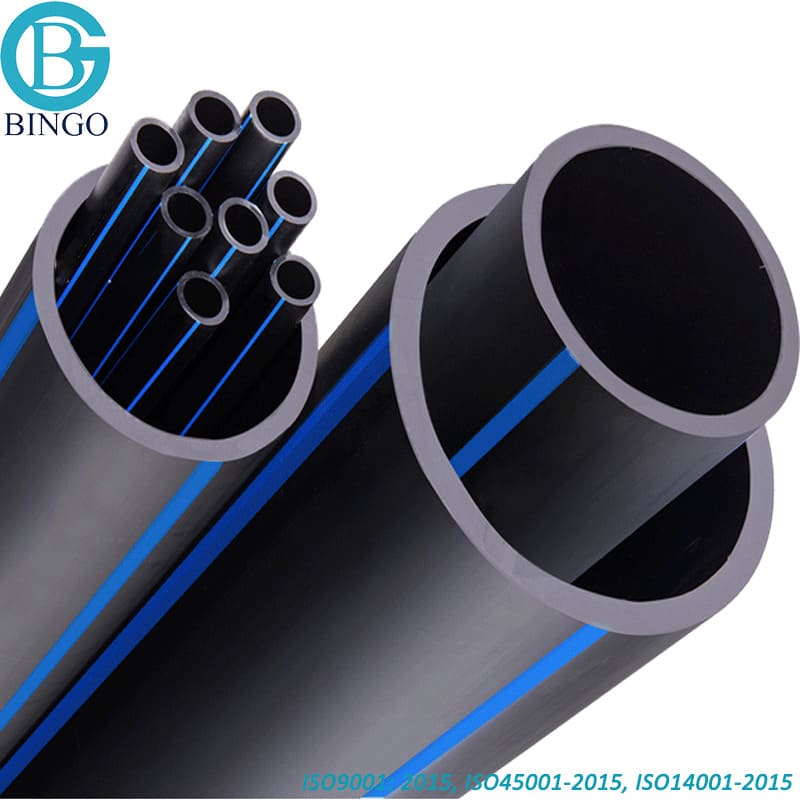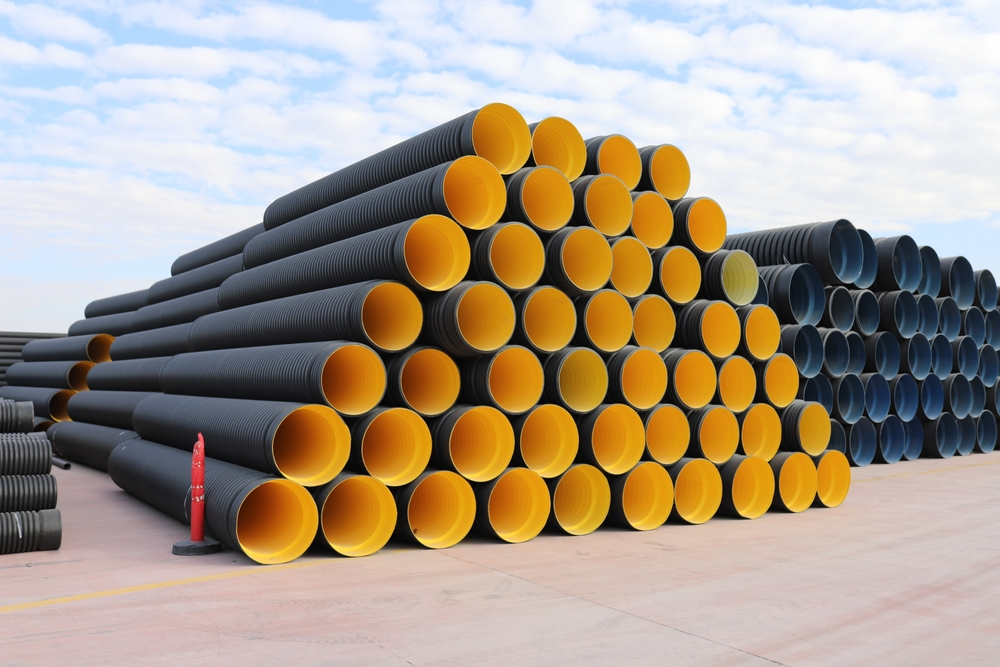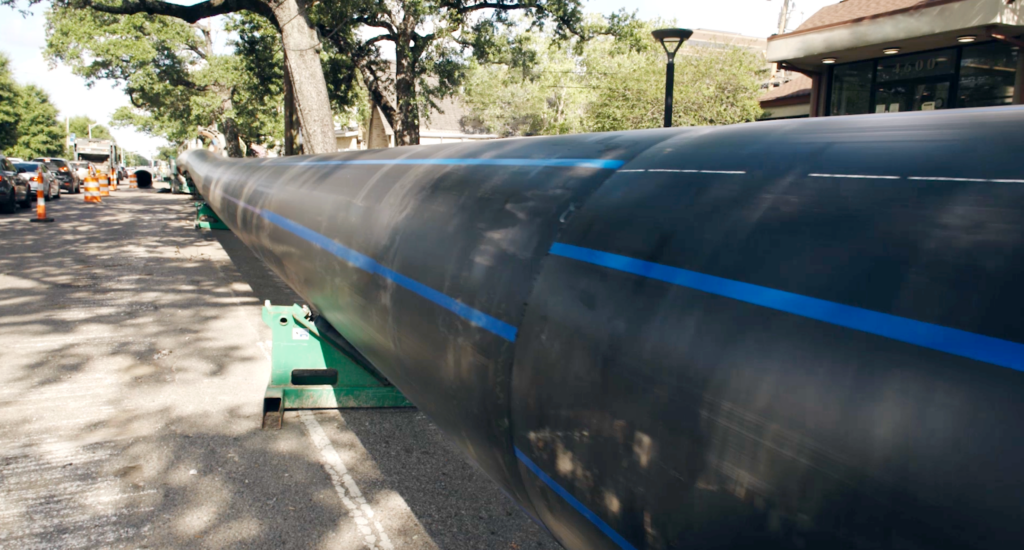Pipeline Manufacturer innovations: advanced practices shaping infrastructure
Discovering the Leading Pipeline Manufacturers: Quality, Integrity, and Development
The pipeline manufacturing industry stands at the intersection of high quality, reliability, and advancement, driven by leading firms such as Tenaris and Vallourec. These producers are not only devoted to producing high-performance products but are additionally pioneering lasting methods that deal with modern-day environmental issues (HDPE Pipe Supplier). As we check out the requirements that specify quality in pipeline solutions, it becomes apparent that the landscape is rapidly evolving. What certain innovations are emerging, and exactly how are these improvements shaping the future of pipeline framework? The answers may redefine market standards in methods that are not yet fully understood
Leading Manufacturers Summary
In the domain of pipeline manufacturing, numerous vital players emerge as leaders, each contributing substantially to the market's landscape. Business such as Tenaris, Vallourec, and JFE Steel have established themselves as frontrunners by regularly supplying top quality items that satisfy strict market standards. Tenaris, renowned for its cutting-edge solutions, specializes in smooth and welded pipes, providing largely to the oil and gas industry. Vallourec, a French multinational, focuses on the production of premium tubular services, highlighting sustainability and progressed technology in its manufacturing procedures.
In A Similar Way, JFE Steel, a major Japanese manufacturer, is recognized for its comprehensive series of steel pipes, especially those utilized in power and facilities tasks. Their dedication to r & d has allowed them to generate high-performance products that endure extreme ecological problems. Additionally, companies like U.S. Steel and National Oilwell Varco have actually broadened their market visibility by expanding their product offerings and enhancing functional effectiveness.
These leading makers not only dominate the marketplace however additionally drive innovation within the sector, establishing benchmarks for high quality and dependability that gamers aspire to accomplish. Their payments are essential for fulfilling the raising need for long lasting and efficient pipeline services worldwide.
Standards for High Quality Evaluation
Quality analysis in pipeline manufacturing pivots on 2 essential standards: product longevity standards and making procedure efficiency. Making certain that materials satisfy extensive durability standards is essential for the longevity and dependability of pipes. In addition, maximizing the manufacturing procedure can boost productivity while keeping high top quality, inevitably impacting general efficiency and security.
Material Sturdiness Criteria
Assuring the durability and reliability of pipeline materials is important for keeping infrastructure honesty and functional efficiency. Material sturdiness requirements play an important role in reviewing the top quality of pipes, determining the performance and life-span of the products utilized in building and construction. Manufacturers should stick to a series of rigorous criteria, consisting of those set by organizations such as ASTM International and the American Petroleum Institute (API)
These standards evaluate various variables, consisting of corrosion resistance, tensile stamina, and exhaustion efficiency. Pipelines used in harsh atmospheres require products that can stand up to chemical destruction, while those subjected to high-pressure problems have to exhibit remarkable tensile stamina.
In addition, aspects such as temperature level fluctuations and environmental problems have to be considered, as these can substantially affect product behavior with time. Manufacturers commonly use sophisticated testing approaches, including accelerated aging examinations, to simulate long-lasting wear and warranty that products go beyond or meet market criteria.
Manufacturing Process Effectiveness
Manufacturers' ability to maximize producing procedure effectiveness is vital for producing top quality pipes that satisfy rigid market standards. Efficiency in making directly affects cost administration, manufacturing timelines, and overall item stability. To attain this, leading pipeline manufacturers apply advanced methods such as lean manufacturing, automation, and real-time information analytics.
Lean making concepts are vital in minimizing waste and maximizing source usage. By enhancing procedures and getting rid of redundancies, manufacturers can improve efficiency while making certain consistent quality. Automation modern technologies, consisting of robotics and computer numerical control (CNC) makers, play a critical role in boosting precision and reducing human error, consequently elevating the dependability of the last product.
Furthermore, the use of real-time information analytics allows manufacturers to keep track of production procedures continuously, allowing them to identify traffic jams and make prompt adjustments. This proactive method not only enhances efficiency yet additionally sustains quality control protocols by ensuring compliance with regulative criteria.
Reliability in Pipeline Solutions
Dependability in pipeline solutions is critical, as it straight affects the safety and security and effectiveness of liquid transport systems. Key aspects include the longevity of products utilized, adherence to rigorous screening and certification standards, and the consolidation of ingenious product solutions that improve efficiency. Understanding these components is essential for suppliers aiming to provide dependable pipeline framework.
Relevance of Sturdiness
Achieving durability in pipeline services is essential, as it directly affects the long-term efficiency and security of infrastructure. Resilient pipelines are vital for decreasing upkeep prices and reducing the likelihood of disastrous failings. This dependability is especially important in markets such as oil and gas, water, and wastewater monitoring, where the repercussions of pipeline failure can be extreme, both financially and eco.
The products and manufacturing procedures employed by pipeline makers play a substantial function in determining the toughness of the last product. Utilizing top notch raw products, advanced innovations, and innovative style concepts assures that pipelines can stand up to different stressors, consisting of stress changes, temperature level variants, and harsh environments.
Furthermore, the longevity of pipelines is very closely linked to their capacity to withstand external factors such as soil activity, seismic activity, and chemical direct exposures. Reliable deterioration security methods, such as coverings and cathodic defense, even more boost the long life of pipes, safeguarding them against wear and tear with time.
Purchasing resilient pipeline services eventually translates to boosted functional efficiency, decreased downtime, and improved safety and security, affirming the important significance of sturdiness in contemporary pipeline manufacturing.
Examining and Qualification Standards
In the domain of pipeline options, rigorous testing and accreditation standards are vital to ensure the reliability and safety of facilities. These criteria serve as criteria for evaluating the performance and toughness of pipeline materials and systems, verifying they fulfill certain regulatory and market requirements.
Checking processes typically include different approaches, including pressure testing, hydrostatic analyses, and non-destructive screening techniques. These analyses are crucial for determining potential weak points or flaws in the materials prior to they are deployed in real-world applications. Additionally, certification by acknowledged companies guarantees that makers comply with established standards, which cultivates count on among stakeholders, consisting of end-users, engineers, and contractors.
Numerous leading pipeline suppliers involve in continuous surveillance and enhancement of their screening protocols to adapt to evolving market standards and technical improvements. Compliance with requirements such as ASTM, ASME, and ISO not just boosts item reliability yet additionally minimizes the danger of environmental incidents connected with pipeline failings.
Innovative Product Solutions
The advancement of innovative product remedies has actually changed the landscape of pipeline manufacturing, enhancing both performance and resilience. Advanced materials such as high-density polyethylene (HDPE), cross-linked polyethylene (PEX), and composite products have actually become game-changers, offering remarkable resistance to deterioration, temperature changes, and stress variants. These materials not only expand the life-span of pipelines yet likewise lower maintenance costs, making certain trusted lasting performance.
Moreover, suppliers are significantly adopting clever materials that integrate sensing units for real-time surveillance. This modern technology permits positive upkeep, substantially boosting dependability by finding leaks or structural weaknesses before they rise right into crucial failings. The combination of nanotechnology has also resulted in the advancement of coverings that enhance the resilience of pipelines against abrasion and chemical exposure.
Sustainability is another crucial emphasis, with makers exploring bio-based compounds and recyclable materials that lessen ecological impact. As regulatory standards remain to progress, the focus on innovative material solutions ends up being vital in conference stringent security and environmental requirements. Eventually, these innovations not only improve the integrity of pipeline systems but also add to the overall efficiency and sustainability of energy transport frameworks.
Developments in Pipeline Innovation
Technologies in pipeline technology are transforming the sector by improving efficiency, security, and ecological sustainability. Current advancements concentrate on smart pipeline systems that use sensing units and IoT modern technology to keep an eye on problems in genuine time, allowing proactive maintenance and minimizing the danger of failings. These systems can identify leakages, stress adjustments, and various other abnormalities, enabling quick feedback and reducing ecological impact.
In addition, the advancement of sophisticated products, such as composite and corrosion-resistant alloys, significantly prolongs the lifespan and reliability of pipelines. Pipeline Manufacturer (American Plastics LLC HDPE Pipeline Manufacturer). These materials reduce upkeep expenses and enhance efficiency in extreme settings, making them suitable for water, gas, and oil transportation
Automation and robotics are playing an important function in pipeline building and evaluation. Drones and robot devices facilitate surveys and analyses of hard-to-reach locations, making sure comprehensive inspections without compromising security.
Furthermore, cutting-edge designs, such as modular pipeline systems, enable greater adaptability in setup and modification, dealing with the dynamic demands of the power market. Together, these technical developments not only boost operational performance however also add to a much more sustainable and resistant pipeline infrastructure, leading the method for a greener future.
Situation Researches of Success
Throughout various industries, effective implementations of sophisticated pipeline modern technologies demonstrate considerable enhancements in functional effectiveness and safety and security. One notable situation is the implementation of clever pipeline surveillance systems in the oil and gas industry, where real-time data analytics have actually reduced leak detection times by over 50%. This not only lessens ecological threats but additionally improves the overall stability of pipeline framework.

In addition, a significant manufacturer applied robot examination modern technologies in its pipeline maintenance procedures, leading to a 40% enhancement in assessment efficiency. This method has structured maintenance schedules and substantially reduced downtime.
These study highlight exactly how leading pipeline manufacturers are leveraging cutting-edge technologies to cultivate reliability and functional excellence, ultimately establishing new criteria for the market. As these successes continue to unravel, they lead the means for additional advancements in pipeline manufacturing and administration.

Environmental Sustainability Practices
Regularly, pipeline makers are focusing on environmental sustainability techniques to reduce their ecological footprint and boost the longevity of their products. This commitment is shown in different efforts intended at lowering waste, conserving energy, and utilizing sustainable materials throughout the manufacturing process.

Numerous producers are embracing advanced innovations that reduce emissions and energy consumption. For example, the integration of automated systems and energy-efficient machinery helps simplify manufacturing while reducing reliance on nonrenewable fuel sources. In addition, firms are progressively transforming to green products, such as recycled steels and bioplastics, which not only minimize the environmental impact yet additionally promote a circular economic situation.
In addition, pipeline manufacturers are executing rigorous lifecycle analyses to examine the environmental effects of their products from inception to disposal. This method enables them to identify possibilities for enhancement and foster responsible sourcing and waste management methods.
Partnership with ecological organizations better improves these initiatives, as producers look for to straighten their operations with international sustainability goals. Ultimately, these ecological sustainability methods not only add to a much healthier planet yet likewise placement makers as accountable leaders in the sector, appealing to ecologically conscious stakeholders and clients alike.
Future Fads in Pipeline Manufacturing
As the demand for extra effective and lasting framework grows, pipeline manufacturing is poised for considerable advancements that will certainly improve the industry. Key patterns prepared for in the coming years include the combination of innovative products, such as corrosion-resistant and composite alloys, which enhance longevity while reducing ecological influence. Manufacturers are also anticipated to take on innovative production strategies, like additive manufacturing and automation, to streamline processes, minimize waste, and reduced costs.
Additionally, the surge of clever pipeline modern technologies, including sensing units and IoT tools, will certainly make it possible for real-time surveillance and anticipating upkeep, therefore boosting safety and security and functional performance. This electronic makeover will certainly not just maximize source administration but also facilitate conformity with rigorous ecological regulations.
Sustainability will continue to be a main focus, driving manufacturers to buy eco-friendly practices, consisting of energy-efficient production approaches and recycling initiatives. As the international focus on climate modification intensifies, pipeline makers will require to adapt by establishing services that meet both financial and ecological needs.
Regularly Asked Questions

What Industries Largely Use Pipeline Products From These Manufacturers?
Pipeline products are mostly utilized in markets such as oil and water, gas and wastewater monitoring, chemical building, handling, and mining. These sectors depend on effective, sturdy, and safe transportation of products and liquids.
Just How Do Manufacturers Make Certain Conformity With International Pipeline Requirements?
Manufacturers guarantee compliance with worldwide pipeline requirements by applying rigorous quality control processes, carrying out normal inspections, adhering to recognized regulative frameworks, and buying employee training to advertise recognition and understanding of security and high quality requirements.
What Is the Average Life Expectancy of Pipelines From Leading Manufacturers?
The typical life expectancy of pipelines from leading makers commonly varies from 30 to 100 years, relying on product, environmental conditions, and maintenance techniques. HDPE Pipe Supplies Midland TX. Regular inspections and adherence to sector criteria substantially affect longevity and efficiency
Exist Certifications Certain to Pipeline Production Top Quality?
Yes, different accreditations exist for pipeline manufacturing top quality, including ISO 9001 for quality monitoring systems and API requirements specific to pipes. These accreditations assure adherence to extensive security, performance, and ecological requirements within the industry.
Just How Do Manufacturers Deal With Pipeline Upkeep and Fixes?
Manufacturers usually implement an aggressive maintenance approach that includes normal evaluations, monitoring systems for very early discovery of issues, and an organized repair procedure. This approach assurances pipeline honesty, minimizes downtime, and improves total functional effectiveness.
Quality analysis in pipeline manufacturing hinges on two essential criteria: material longevity standards and producing procedure performance - HDPE Pipe Supplier. Material resilience criteria play an essential function in examining the high quality of pipelines, determining the efficiency and life-span of the products used in building. continue reading this The products and making procedures employed by pipeline producers play a substantial duty in establishing the resilience of the last item. The typical lifespan of pipelines from leading producers commonly varies from 30 to 100 years, depending on product, ecological conditions, and upkeep techniques. Yes, different qualifications exist for pipeline making quality, including ISO 9001 for quality management systems and API standards particular to pipelines